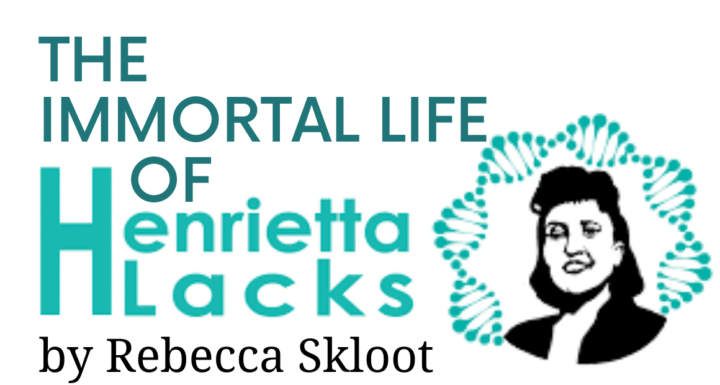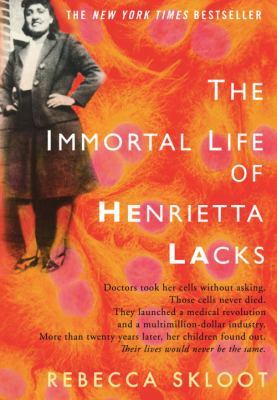Title: The Immortal Life of Henrietta Lacks
Author: Rebecca Skloot
Publisher: Crown Publishing Group
Genre: Non Fiction, True Accounts
First Publication: 2010
Language: English
Major Characters: Henrietta Lacks
Setting Place: Baltimore and the surrounding area
Theme: Racism, Classism, and Sexism, Family and Faith, Progress vs. Privacy, Technology and Globalization, Immortality and Its Costs
Narrator: First Person
Book Summary: The Immortal Life of Henrietta Lacks by Rebecca Skloot
Her name was Henrietta Lacks, but scientists know her as HeLa. She was a poor Southern tobacco farmer who worked the same land as her slave ancestors, yet her cells—taken without her knowledge—became one of the most important tools in medicine: The first “immortal” human cells grown in culture, which are still alive today, though she has been dead for more than sixty years. HeLa cells were vital for developing the polio vaccine; uncovered secrets of cancer, viruses, and the atom bomb’s effects; helped lead to important advances like in vitro fertilization, cloning, and gene mapping; and have been bought and sold by the billions.
Yet Henrietta Lacks remains virtually unknown, buried in an unmarked grave.
“But I tell you one thing, I don’t want to be immortal if it mean living forever, cause then everybody else just die and get old in front of you while you stay the same, and that’s just sad.”
Henrietta’s family did not learn of her “immortality” until more than twenty years after her death, when scientists investigating HeLa began using her husband and children in research without informed consent. And though the cells had launched a multimillion-dollar industry that sells human biological materials, her family never saw any of the profits. As Rebecca Skloot so brilliantly shows, the story of the Lacks family—past and present—is inextricably connected to the dark history of experimentation on African Americans, the birth of bioethics, and the legal battles over whether we control the stuff we are made of.
Over the decade it took to uncover this story, Rebecca became enmeshed in the lives of the Lacks family—especially Henrietta’s daughter Deborah. Deborah was consumed with questions: Had scientists cloned her mother? Had they killed her to harvest her cells? And if her mother was so important to medicine, why couldn’t her children afford health insurance?
Intimate in feeling, astonishing in scope, and impossible to put down, The Immortal Life of Henrietta Lacks captures the beauty and drama of scientific discovery, as well as its human consequences.

Book Review: The Immortal Life of Henrietta Lacks by Rebecca Skloot
Henrietta Lacks, a young African-American mother of five children, died in Baltimore in 1951 from a highly aggressive form of cervical cancer—but more than fifty years after her death, part of her lives on in the form of HeLa, a cell line cultivated from a tissue sample of hers which played a key role in several major scientific and medical breakthroughs.
The Immortal Life of Henrietta Lacks by Rebecca Skloot tells the story of an African American woman, Henrietta Lacks, who went to Johns Hopkins in 1951 for treatment for cervical cancer. Some cancerous cells were removed from her body. This much she knew. The cells were also saved, cultured, and reproduced—without her knowledge or consent—as was common practice at the time.
“Black scientists and technicians, many of them women, used cells from a black woman to help save the lives of millions of Americans, most of them white. And they did so on the same campus—and at the very same time—that state officials were conducting the infamous Tuskegee syphilis studies.”
What makes The Immortal Life of Henrietta Lacks an amazing story is that Henrietta’s cells have never died from that day until the present, hence the title. They continue to grow and reproduce at a phenomenal rate. They currently exist in laboratories, hospitals and warehouses all over the world; have been used in almost every form of scientific research from the 50’s until now; have gone to space; and have been contaminated and caused contamination.
The scientific and medical communities owe untold debt to the cells it calls HeLa and yet not one dime of compensation, even in terms of discounted medical care or health insurance has ever been received by any of Henrietta’s numerous descendants.
“I keep with me all I know about you deep in my soul, because I am part of you, and you are me.”
Interestingly enough, they aren’t looking for anything in that way. Now isn’t that refreshing? Rather, in spite of all they have suffered—and indeed this is a book about pain—their focal interest throughout was in finding out what happened to their mother since she died so young, gaining recognition for her and learning what happened to Henrietta’s oldest daughter who died in a ‘hospital for the negro insane’, which was 1950’s terminology.
The Immortal Life of Henrietta Lacks crosses many disciplines and for that reason I expect scientists might skim the vignettes about Henrietta’s children, while those who prefer human interest could find themselves avoiding the technical sections.
Virginia Woolf’s Common Readers, however, will positively adore this book! It has everything they look for in the written word. Not only what was just mentioned, but also: the complexities and importance of the ‘tissue issue’, what are the medical, legal, ethical, and other parameters for tissue gathering, storage, research, usage, and compensation.





